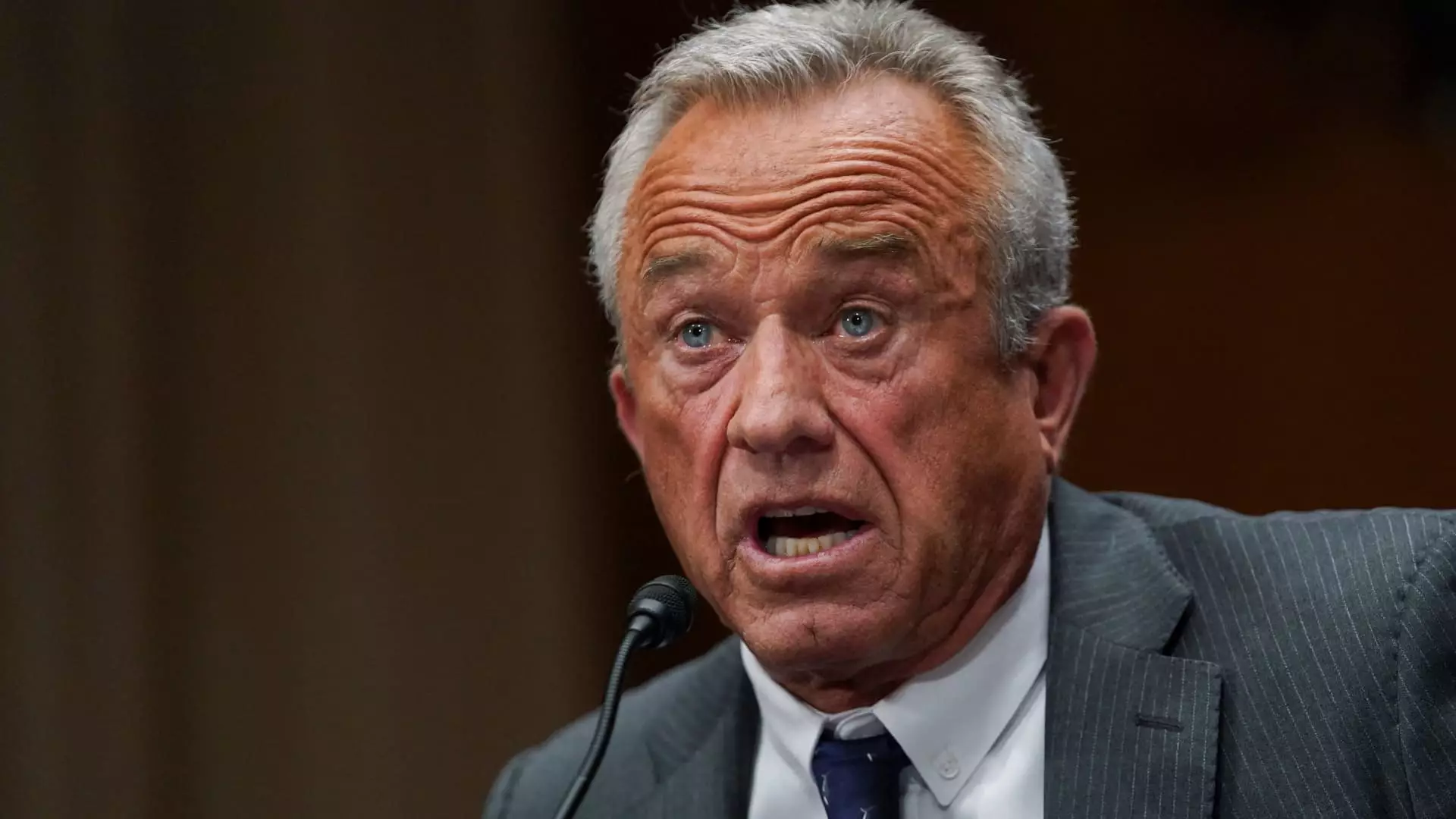The nomination of Robert F. Kennedy Jr. by former President Donald Trump to lead the Department of Health and Human Services (HHS) has sparked significant debate, particularly due to his apparent lack of understanding about critical healthcare programs like Medicare and Medicaid. During his recent Senate confirmation hearings, Kennedy struggled to navigate foundational aspects of these essential public health programs, raising concerns among lawmakers about his readiness to oversee a vast agency with a $1.7 trillion budget.
The Senate Committee on Health, Education, Labor, and Pensions saw Kennedy encounter tough scrutiny from lawmakers, foremost among them Democratic Senator Maggie Hassan of New Hampshire. Her pointed inquiries aimed to gauge Kennedy’s grasp of Medicare, a system that provides health coverage for seniors and individuals with disabilities. Unfortunately, his inability to articulate the core functions of various Medicare parts—such as Parts A and B—suggests a shocking degree of unpreparedness for a position that demands comprehensive knowledge of America’s healthcare landscape. For example, when asked about Medicare Part A, Kennedy mistakenly referred to it as “mainly for primary care or physicians,” while it actually covers inpatient hospital services. This blunder hints at a troubling disparity between his qualifications and the expectations associated with leading a major health agency.
Adding to the scrutiny, Kennedy also appeared to conflate Medicare and Medicaid, two distinctly different programs providing essential services to diverse populations. According to Senator Hassan, he mistakenly stated that Medicaid is “fully paid for” by the federal government, neglecting to mention the significant state funding that also supports this program. Such confusion was criticized by Senator Ron Wyden, D-Ore., who remarked that Kennedy seemed “unprepared” and seemed unsure about fundamental differences between the two programs. This presents a concerning prospect, especially as Medicaid costs the federal government over $600 billion annually and faces potential funding cuts from Republicans looking for budgetary reductions.
Kennedy’s gaffes during the hearings create a narrative that questions not only his preparedness for the role but also the overall implications of his leadership on the HHS. The Department oversees critical health initiatives and programs that affect millions of Americans, including the Centers for Medicare & Medicaid Services, which plays a pivotal role in administering these programs. The knowledge gap exhibited by Kennedy during his hearings could potentially jeopardize the management of essential services for vulnerable populations, including seniors, low-income families, and the disabled.
Moreover, Kennedy, who misstepped in identifying Medicare’s various components, claimed to have discussed “the basics” of the program. However, various senators countered that his explanations often required substantial corrections. Such interactions indicate not just a lack of preparedness but also an alarming inability to effectively communicate and educate others about vital health policies—an essential skill for anyone leading an expansive agency tasked with public welfare.
Kennedy’s confirmation hearings are illustrative of a deeper problem within the intersection of politics and healthcare: the politicization of crucial health decisions. Debates over Medicare and Medicaid often become battlegrounds for partisan disagreements, and the appointment of an ill-prepared leader could exacerbate these tensions. Particularly as Republicans may seek to reform or even cut Medicaid funding to finance tax cuts, the need for a knowledgeable advocate at the helm of HHS has never been more urgent.
The proceedings surrounding Robert F. Kennedy Jr.’s nomination serve as a cautionary tale for the importance of competency and preparedness in leadership roles affecting public health. As the country grapples with various healthcare challenges, including the ongoing ramifications of the COVID-19 pandemic, robust leadership within HHS is critical. The struggles demonstrated by Kennedy during his confirmation hearings could undermine the essential functions of one of the largest federal agencies, ultimately impacting millions of vulnerable Americans relying on programs like Medicare and Medicaid for their health and well-being.


Leave a Reply